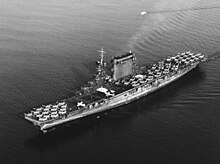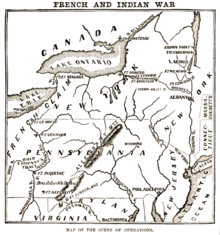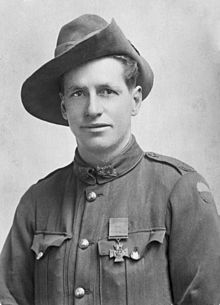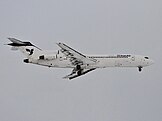Portal:History
The History Portal

Historia by Nikolaos Gyzis
History (derived from Ancient Greek ἱστορία (historía) 'inquiry; knowledge acquired by investigation') is the systematic study and documentation of the past. History is an academic discipline which uses a narrative to describe, examine, question, and analyse past events, and investigate their patterns of cause and effect. Historians debate which narrative best explains an event, as well as the significance of different causes and effects. Historians debate the nature of history as an end in itself, and its usefulness in giving perspective on the problems of the present.
The period of events before the invention of writing systems is considered prehistory. "History" is an umbrella term comprising past events as well as the memory, discovery, collection, organization, presentation, and interpretation of these events. Historians seek knowledge of the past using historical sources such as written documents, oral accounts or traditional oral histories, art and material artefacts, and ecological markers.
Stories common to a particular culture, but not supported by external sources (such as the tales surrounding King Arthur), are usually classified as cultural heritage or legends. History differs from myth in that it is supported by verifiable evidence. However, ancient cultural influences have helped create variant interpretations of the nature of history, which have evolved over the centuries and continue to change today. The modern study of history is wide-ranging, and includes the study of specific regions and certain topical or thematic elements of historical investigation. History is taught as a part of primary and secondary education, and the academic study of history is a major discipline in universities.
Herodotus, a 5th-century BCE Greek historian, is often considered the "father of history", as one of the first historians in the Western tradition, though he has been criticized as the "father of lies". Along with his contemporary Thucydides, he helped form the foundations for the modern study of past events and societies. Their works continue to be read today, and the gap between the culture-focused Herodotus and the military-focused Thucydides remains a point of contention or approach in modern historical writing. In East Asia a state chronicle, the Spring and Autumn Annals, was reputed to date from as early as 722 BCE, though only 2nd-century BCE texts have survived. The title "father of history" has also been attributed, in their respective societies, to Sima Qian, Ibn Khaldun, and Kenneth Dike. (Full article...)
Featured picture
Did you know (auto generated)

- ... that Chris Wroblewski was the starting point guard for the winningest team in Ivy League history?
- ... that writer Malcolm Neesam was awarded the Freedom of the Borough of Harrogate, England, by the town council for services to local history?
- ... that a poem by Moses da Rieti includes an encyclopedia of the sciences, a Jewish paradise fantasy, and a post-biblical history of Jewish literature?
- ... that the first game in Georgetown football history was never played?
- ... that Timo Meier became the first player in San Jose Sharks franchise history to score five goals in one game when he was 25?
- ... that the Three Bards are the most celebrated poets in the history of Polish literature?
Fakih Usman (alternatively spelled as Faqih Usman; [faˈkɪh ʊsˈman]; 2 March 1904 – 3 October 1968) was an Indonesian Islamic leader and politician of the Masyumi Party. He twice served as the Minister of Religious Affairs under the cabinets of Abdul Halim and Wilopo from January until September 1950, and again from 1952 until 1953. In his early years, Fakih was criticized by conservative Muslims for his involvement with the modernist Islamic Muhammadiyah organization, though he is remembered fondly by the group. Born to a merchant and his wife in Gresik, Dutch East Indies, Fakih studied with his father and at a series of pesantren (Islamic boarding schools) until the 1920s.
In 1925 he became involved with the Muhammadiyah, rising quickly through the leadership until he became the head of the Surabaya branch in 1938. He was also active in local politics, in 1937, he became the treasurer of the Indonesian Islamic Assembly. He continued to be involved in politics and Islamic groups during the Japanese occupation and the ensuing national revolution. Following the end of the war, he was appointed Minister of Religious Affairs. As a minister, he oversaw educational and institutional reform, growing in prominence within the Muhammadiyah. He also served as deputy chairman of the organization under several different leaders before being chosen as its chairman in late 1968. He died several days later. (Full article...)
On this day
- 1797 – War of the First Coalition: The siege of Kehl by Habsburg and Württembergian forces ended when French troops withdrew from their fortifications.
- 1917 – First World War: Troops of the British Empire defeated Ottoman forces at the Battle of Rafa on the Sinai–Palestine border.
- 1972 – The Los Angeles Lakers of the National Basketball Association lost to the Milwaukee Bucks, ending a 33-game winning streak, the longest in major American professional team sports.
- 1975 – The Great Storm spawned the first of 45 tornadoes over a three-day period in the Southeastern United States.
- 2011 – In poor weather conditions, Iran Air Flight 277 (aircraft pictured) crashed near Urmia Airport, Iran, killing 78 of the 105 people on board.
- T. W. Robertson (b. 1829)
- Carrie Chapman Catt (b. 1859)
- Farhan Akhtar (b. 1974)
- Lei Jieqiong (d. 2011)
Selected quote
"Strike an enemy once and for all. Let him cease to exist as a tribe or he will live to fly in your throat again".
— Shaka, 19th century Zulu king
Related portals
More Did you know...
- ... that the Japanese aircraft carrier Amagi (wreck pictured) capsized on 29 July 1945 as a result of cumulative damage inflicted by American airstrikes on 24 and 28 July?
- ... that Scandinavian influence in Scotland, still evident today, was probably at its height during the time of Thorfinn the Mighty?
- ... that, after the 2003 invasion of Iraq, the Bassetki statue, which is more than 4,200 years old, was found in a cesspool?
- ... that in medieval art, angels were often depicted wearing feather tights?
- ... that 49% of German military losses happened in the last 10 months of the Second World War in Europe?
- ... that Joshua L. Goldberg, the first rabbi to serve as a World War II U.S. navy chaplain, was a Russian army deserter?
- ... that Richard Nixon chose the Wilson desk as his Oval Office desk because he believed it was used by Woodrow Wilson, informed that it was used by Henry Wilson, Vice President under Ulysses S. Grant, but actually bought by Garret Augustus Hobart, 24th Vice President of the United States under President William McKinley?
- ... that some of the nominally silver Roman coins from the Bredon Hill Hoard only have a 1% silver content?
Topics
Categories

History • By period • By region • By topic • By ethnic group • Historiography • Archaeology • Books • Maps • Images • Magazines • Organizations • Fictional • Museums • Pseudohistory • Stubs • Timelines • Chronology • People • Wikipedia historians
WikiProjects
![]() WikiProject History •
Ancient Near East • Australian History • Classical Greece and Rome • Dacia • Former countries • History of Canada • Chinese history • European history • Heraldry and vexillology • Indian history • Jewish history • Medieval Scotland • Mesoamerica • Military history • Middle Ages • History of Science
WikiProject History •
Ancient Near East • Australian History • Classical Greece and Rome • Dacia • Former countries • History of Canada • Chinese history • European history • Heraldry and vexillology • Indian history • Jewish history • Medieval Scotland • Mesoamerica • Military history • Middle Ages • History of Science
WikiProject Time • Days of the Year • Years
WikiProject Biography • Composers • Political figures • Saints • United States Presidents
Things you can do
 |
Here are some tasks awaiting attention:
|
Associated Wikimedia
The following Wikimedia Foundation sister projects provide more on this subject:
-
Commons
Free media repository -
Wikibooks
Free textbooks and manuals -
Wikidata
Free knowledge base -
Wikinews
Free-content news -
Wikiquote
Collection of quotations -
Wikisource
Free-content library -
Wikiversity
Free learning tools -
Wiktionary
Dictionary and thesaurus



























![Image 15 Apollo 11 Photograph credit: Neil Armstrong Apollo 11 was the fifth crewed mission of NASA's Apollo program. After launching from the Kennedy Space Center in Florida on July 16, 1969, commander Neil Armstrong and Apollo Lunar Module pilot Buzz Aldrin landed Eagle in Mare Tranquillitatis on July 20, at 20:17:40 UTC, while command module pilot Michael Collins remained on Columbia in lunar orbit. Armstrong was the first to exit the spacecraft, stepping onto the surface 6 hours and 39 minutes later, on July 21, at 02:56:15 UTC; nineteen minutes later, Aldrin joined him on extravehicular activity, which lasted 2 hours, 31 minutes and 40 seconds. Armstrong and Aldrin lifted off from Tranquility Base after almost 22 hours on the lunar surface and rejoined Collins in the command module, before splashing down in the Pacific Ocean on July 24. The mission was planned to the minute, with the majority of the photographic tasks performed by Armstrong with a single Hasselblad camera. Most of the photographs taken on the Moon that include an astronaut are of Aldrin; there are only five images of Armstrong partly shown or reflected, as in this photograph, with Armstrong and the lunar module reflected in Aldrin's helmet visor. "As the sequence of lunar operations evolved," Aldrin explained, "Neil had the camera most of the time [...] It wasn't until we were back on Earth and in the Lunar Receiving Laboratory looking over the pictures that we realized there were few pictures of Neil." More featured pictures](http://upload.wikimedia.org/wikipedia/commons/thumb/9/98/Aldrin_Apollo_11_original.jpg/119px-Aldrin_Apollo_11_original.jpg)

























